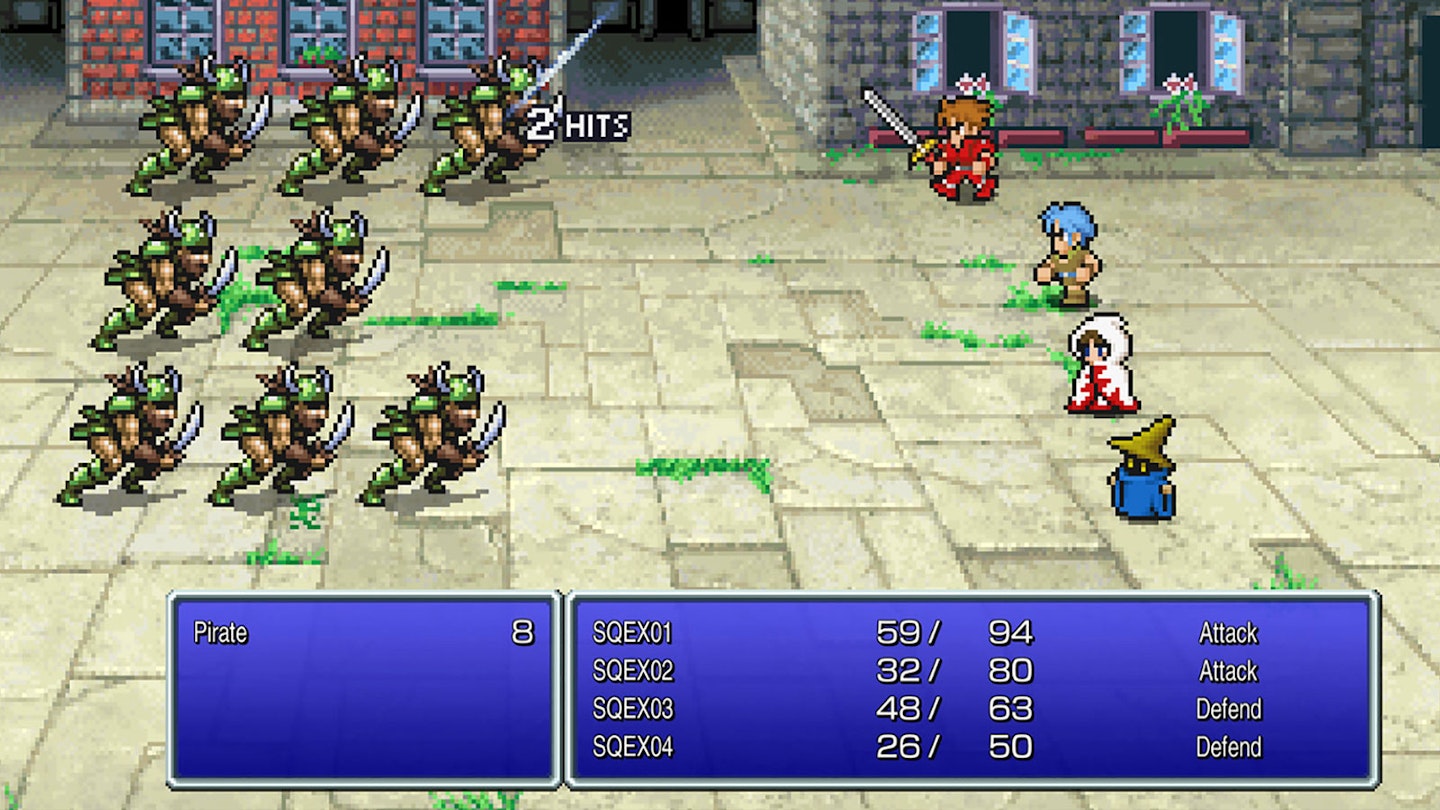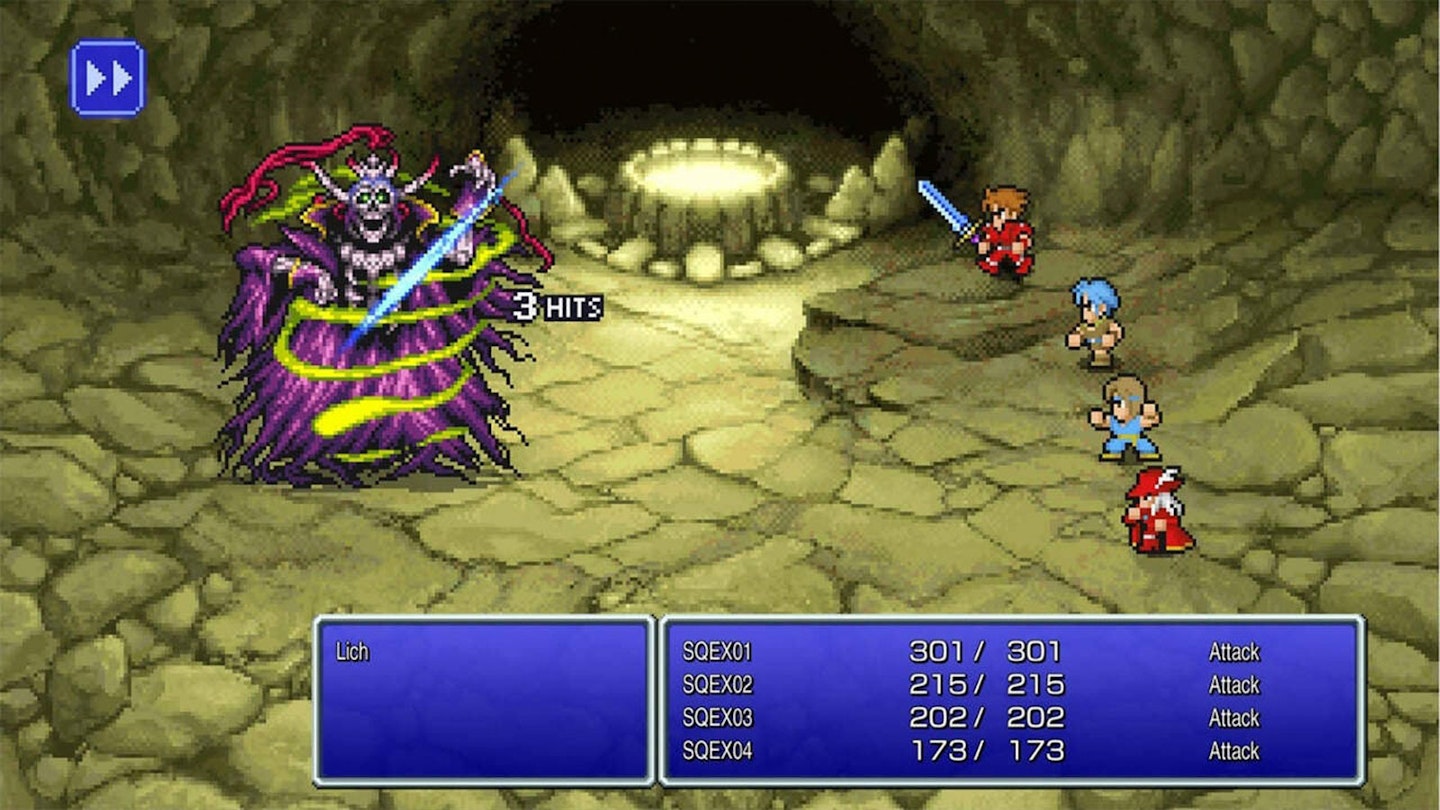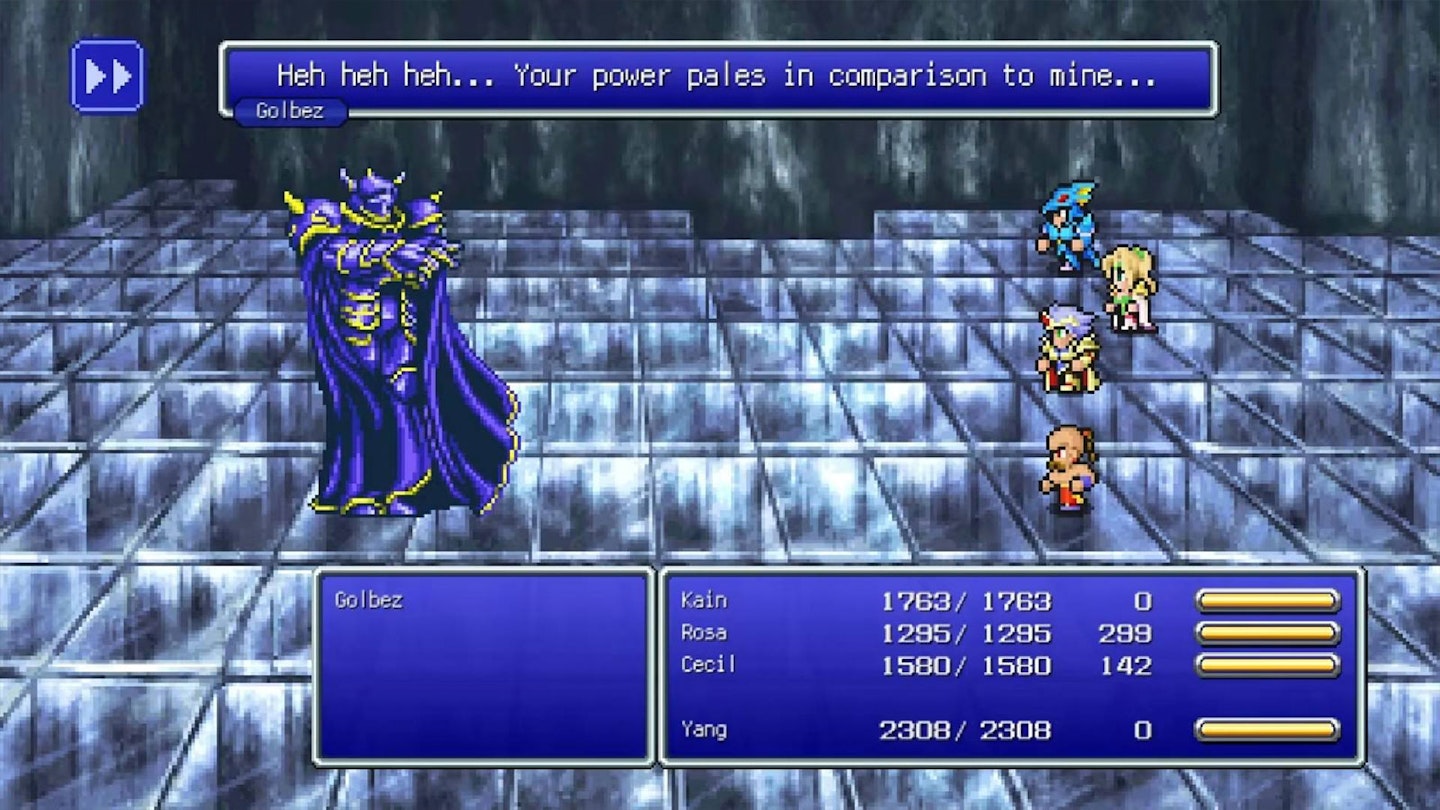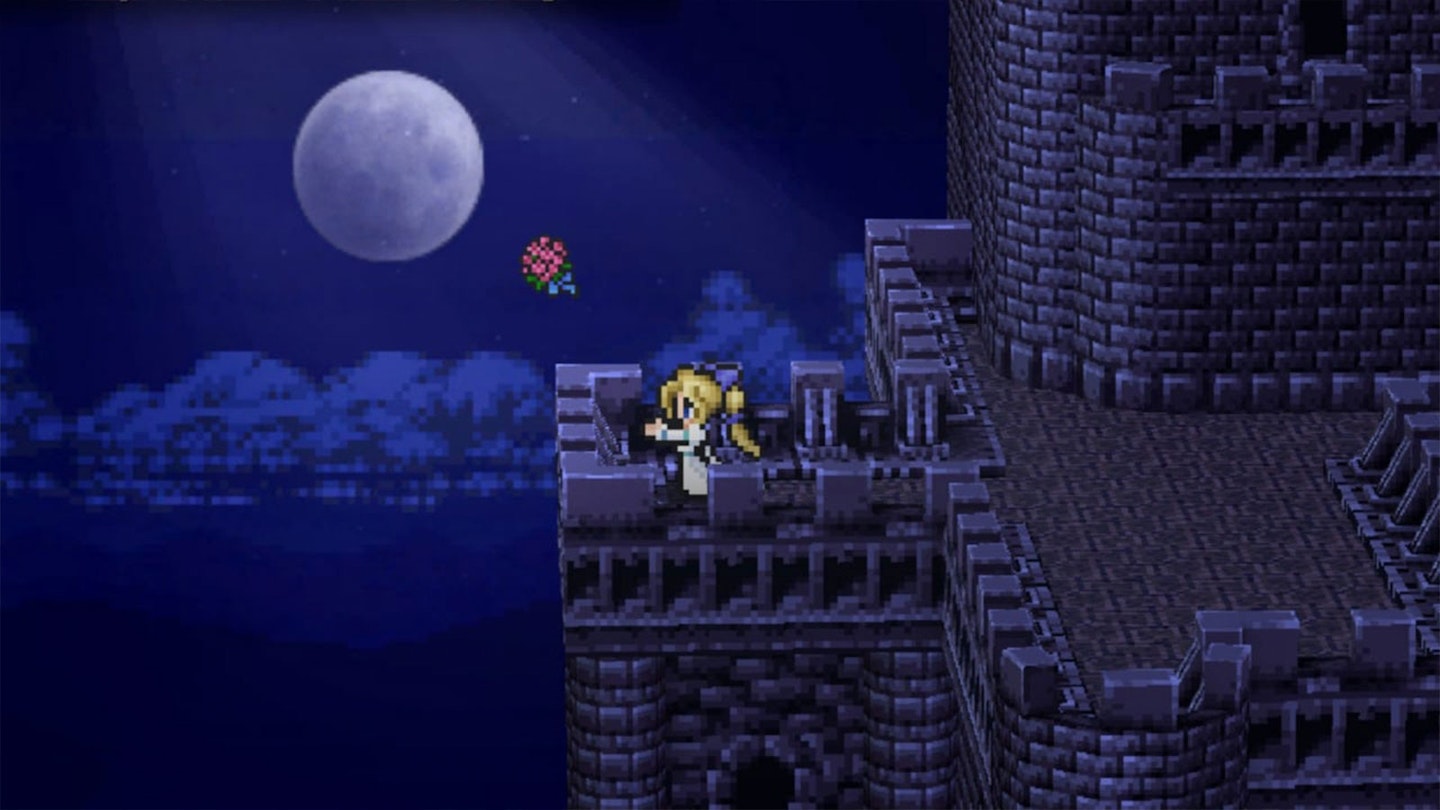Platforms: Nintendo Switch, PS4
As the medium of video games evolves and grows, game preservation becomes an increasingly tricky problem to solve. It's easy to keep a book, a piece of music, or even a film accessible for future generations, but games face unique problems. Not only are they often tied to the hardware they were first released on – hardware that itself can't be relied upon to last, or to be compatible with current or future displays – but player tastes and expectations change and evolve. Pong is a historically important game, but ask yourself: do you really want to play Pong in 2023?
So too is the problem for Final Fantasy. It's one of gaming's biggest, most prestigious, and, yes, important franchises, but when the cinematic blockbuster of Final Fantasy XVI is around the corner, will anyone bar nostalgists want to go back and play the original Final Fantasy, released over 35 years ago? And if so, what form should that take? There have been so many re-releases of the game over the decades that it's hard to pin down a ‘definitive’ version.

Which is probably where Square Enix's Final Fantasy Pixel Remaster series comes in. Announced in 2021, the project upgrades the first six core games in the role-playing franchise in a manner that aims to preserve the tone and overall aesthetic of the original 8-bit and 16-bit games, while making them a bit more palatable to contemporary players and adding a bit of future-proofing for audiences down the line.
The six games, stretching from 1987's original Final Fantasy to 1994's Final Fantasy VI, were initially drip-fed to PC players over the course of the last two years. However, those releases were met with responses ranging from icy to enthusiastic, with complaints ranging from changes going too far to the fonts not looking right.
This is a real goldmine of classic JRPG entertainment.
That last one was fair cop, and one of the best improvements Square Enix has made to the Pixel Remasters on PS4 and Switch (version tested). While the smooth, modern fonts remain the default across all six games – and yes, they do look jarringly out of place in these pixellated worlds – a quick switch to 'Classic' in the configuration menu of each title restores a much more aesthetically pleasing pixel font that's still sharp and easy to read.
The benefit of other changes to these classics will depend on just how much of a purist you are. It's undeniable that the first three games, which saw release on the humble NES, get the biggest overhaul. For example, the black battle screens of the OGs are done away with, replaced with slightly more detailed pixel art settings that make the encounters just a bit more interesting to look at, without any material change to the classic turn-based combat.

Yet even that earliest entry doesn't try to rewrite history too much – interiors of buildings still float in nebulous voids, layouts of villages and dungeons remain unchanged — albeit with some pixel-based beautification — and the overworld map remains essentially the same, just a bit sharper. Is it a 100% recreation of the 1987 Final Fantasy? No. Does it capture the feel without becoming a different game entirely? Yes. It's still the simple tale of four nameless Warriors of Light restoring the world that kicked off the franchise all those years ago, it's just visually tolerable on a 4K TV now. In fact, for returning players, the best part of the Pixel Remaster project as a whole may be how the visual approach presents each game as how you think you remember them looking – memory is a funny thing.
Other titles have their own curiosities, though. For instance, Final Fantasy III is a particularly odd one, having previously enjoyed a 3D remake on the Nintendo DS. The version here is rebuilt from the 1990 NES original, which makes it both remake and downgrade. Final Fantasy VI, originally released on the SNES in 1994, remains a contender for one of the best entries in the entire series, but lacks the flashy CG cinematics that were added to its 1999 rerelease on PS1. It's a common theme across the Pixel Remasters – these aren't ‘definitive’ editions of the titles because there's essentially no such thing.

Across the board, Square Enix has added a host of quality of life improvements to the games. Beyond the visual revamp bringing these pixel beauties up to a 16:9 aspect ratio, fully instrumental music now accompanies each game (and is easily swapped for the original chiptune versions of the soundtracks, if you prefer), while mini-maps now float in the corner of the screen, helping navigate some of the labyrinthine dungeons the series is known for. There are also features to streamline level grinding and exploration, from boosts to experience points and money earned after each battle, to the option to turn random encounters off with a press of the right thumbstick. Admittedly, some of these tools arguably go too far – the ability to set random fights to auto-battle has the games essentially playing themselves – but the beauty of these tools is that they're all optional. If you still want an experience as close to 1987 as possible, you can create that by turning all the updates off.
One aspect that does slightly disappoint is that this ‘collection’ isn't really, well, a collection. Unlike other anniversary re-releases of classic games, remastered or not – think the various Mega Man Legacy Collection packages, or Sonic Origins – there's no framing package housing all six games. Buy the bundle on either the Nintendo or PlayStation digital storefronts and you'll simply get all six games as their own downloads. While it does mean players have the option to buy only the games they want or stretch the cost of buying all six (I and II sell for £9.49 each, III-VI are £14.99 each, or it’s £64.99 for the bundle), it does feel a bit of a missed opportunity to not cram in some library content or digital extras to celebrate these key entries for the series.
Still, there's no denying that whether you pick them up individually or as a collection, this is a real goldmine of classic JRPG entertainment. The earliest instalments, with their comparatively straightforward stories and simplistic battle systems may be entering 'historic curiosity' territory, but still hold a certain charm and hold up to playing in 2023, while later ones – notably IV and VI – remain all-time greats. With the tweaks and improvements from the PC releases that Square Enix has implemented, these should stand the test of time for at least another decade.
